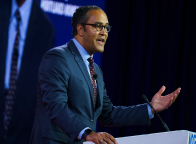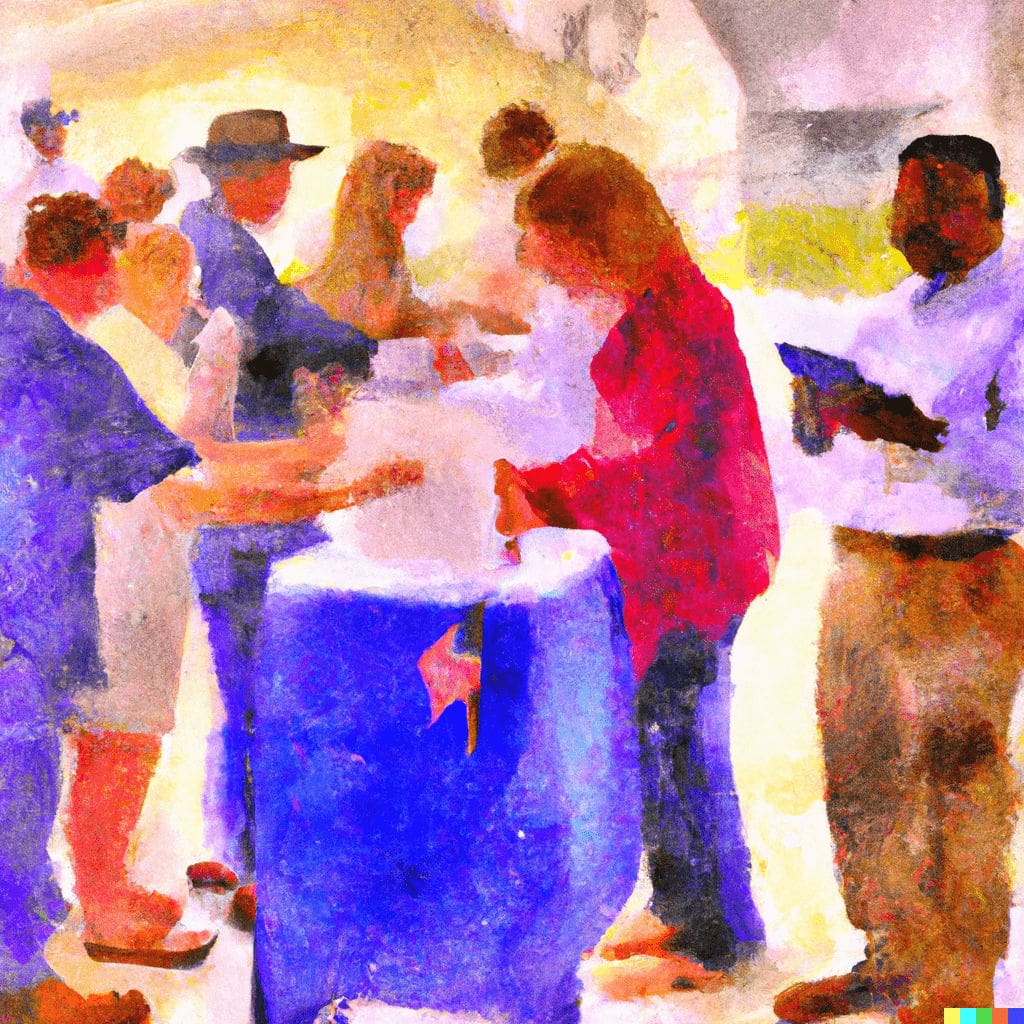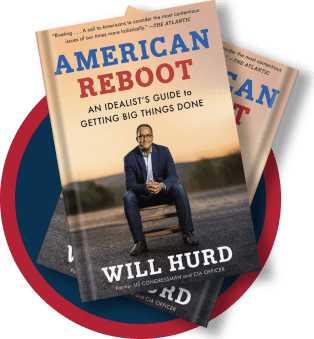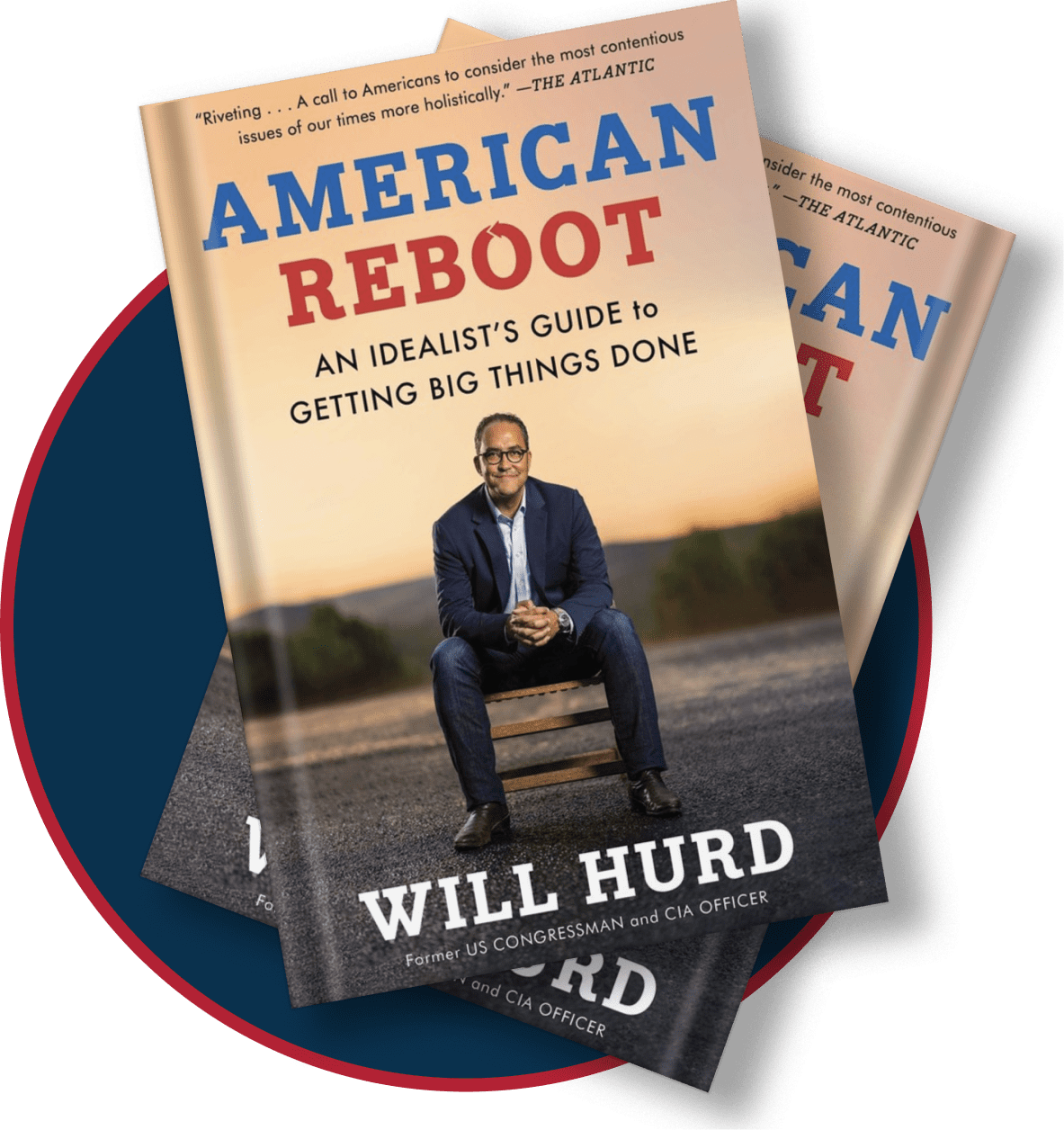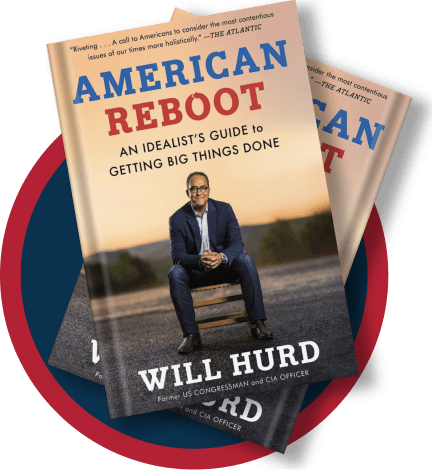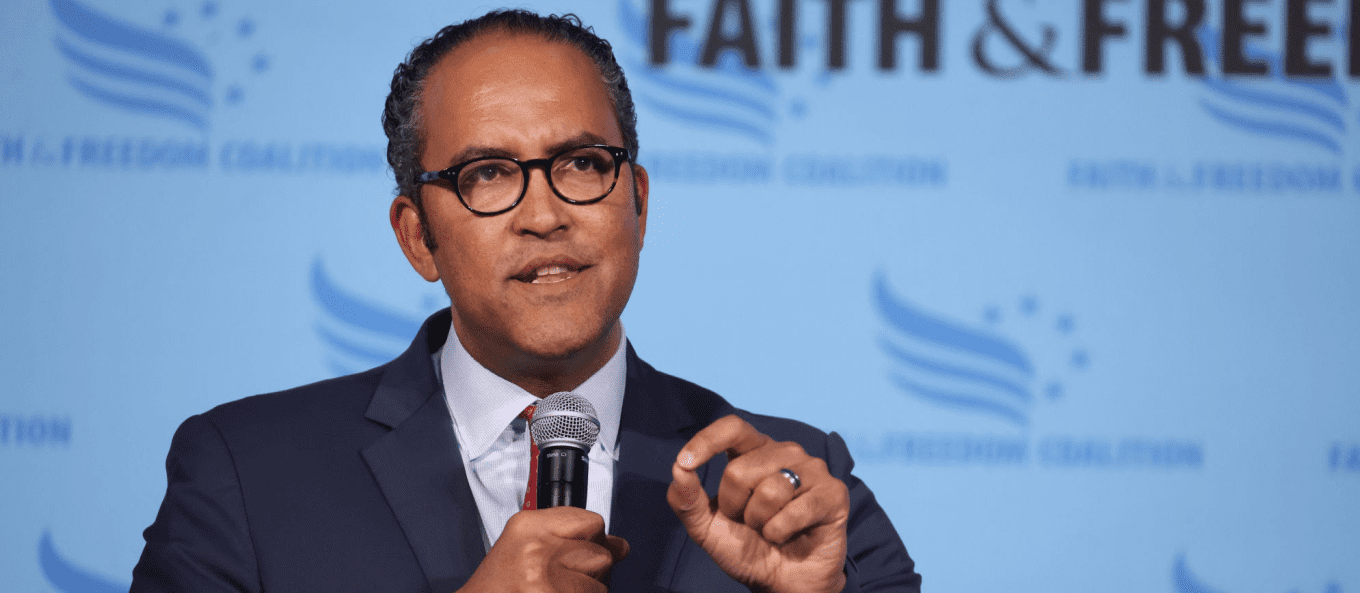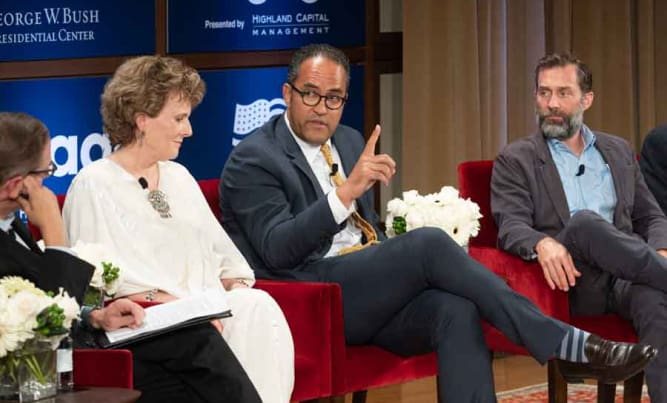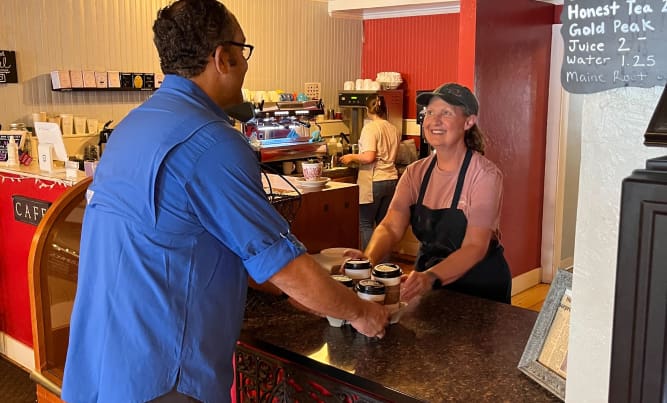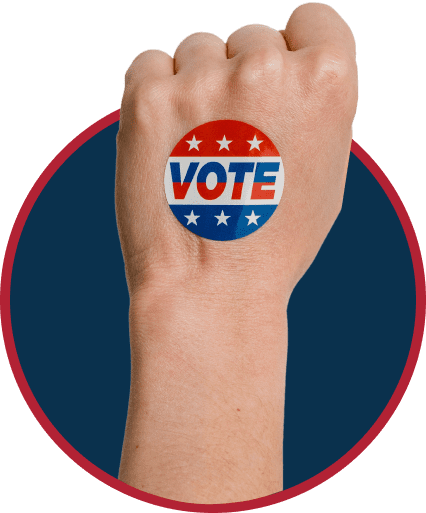Image by DALL-E
4 min read
The good news: the turnout in the 2022 election was higher than usual for a midterm election. People showed up even though midterm elections have historically low participation compared to presidential cycles. Our last midterms in 2018 had the highest voter turnout for a non-presidential contest in over one hundred years.
- A total of 49% of eligible voters voted in 2018 (more than 122 million people), compared to just 36% of eligible voters in 2014.
The bad news: Despite showing a deep commitment to exercising their civic duty, voters didn’t love their choices when they got into the voting booth. Oftentimes, people vote for the lesser of bad choices, or they vote against someone rather than FOR someone.
It doesn’t have to be this way.
The Challenges of the Next 10 Years
Our country is going to be dealing with major challenges over the next decade like:
- dealing with a Chinese Government trying to surpass the U.S. as the sole global superpower,
- combating the threats of cyberterrorism and new technologies that can erode our freedoms, and
- becoming more energy independent.
Many voters feel left out of politics today and are frustrated with the government’s inability to address current problems like inflation, a festering border crisis, people feeling worse off than they were two years ago, rising crime and America’s declining influence around the world.
We can’t deal with the future unless we address the present. This requires real leadership, which we don’t always see on our ballots in November.
Great Candidates Don’t Automatically Win
If you didn’t like your options on election day, then the one thing you need to start doing is voting in primaries and encouraging others to do the same. Great candidates don’t automatically win, but many times they can be found running in primary elections.
Primaries are as important as general elections, and in most cases they’re more important.
This election, only 6% of House seats (27 districts) are truly competitive in the general election. This means that in 408 of the 435 districts, whoever wins the primary of the dominant party will be going to Washington, DC.
If you live in one of the 408 districts that isn’t competitive or you want to ensure you get to vote for your preferred candidate next November, then the way to make your vote count is to vote in primaries. It’s in the primary that the average voter can have a real role in choosing who will represent them in congress.
Primaries are for everyone to participate in, not just people that attend political meetings.

Source: Future Leaders Fund
In the last presidential election 67% of the 239 million eligible voters exercised their right to vote (160 million people). This was a record turnout in the United States. However, only 24% of eligible voters (58 million people) voted in the 2020 primaries. This means 43% of eligible voters (102 million Americans) voted in the general but not the primary. If we had 43% more eligible voters voting in primaries, then we would be seeing better options in the general election.
Put a different way, 64% of the people who voted in the last election for president didn’t participate in deciding who their preferred candidate would be. Many people don’t vote in primaries because they do not:
- feel like they knew enough about the candidates,
- think their vote would make a difference,
- get asked by anybody to vote,
- know the primary is happening,
- Understand the process to vote in a primary, or
- They assumed a good candidate would probably win anyway.
There are resources available like vote.org which helps you to register, shows you what’s on your ballot, gives you links to more information on candidates, and tells you where you can vote.
If more people voted in primaries, then we could prevent a scenario in 2024 where our choice for the leader of the free world is between two octogenarians. If we believe the greatest country on the planet deserves to have a leader that is in his or her prime, then we all need to start voting in primaries, where better options are often presented. More people voting in primaries would go a long way in addressing the lack of leadership in Washington, DC.
Keeping the Experiment in Democracy Running
Keeping this experiment called America running for another 247 years does not require of us the kind of sacrifice that that so many thousands of others before us were called upon to make in places like the fields of Lexington or Gettysburg, the beaches of Normandy, or the fortresses of Mazar-e-Sharif.
Keeping this experiment going only requires us to exercise our right to vote.
Voting in presidential general elections is the floor of civic activity. So many Americans before us have struggled to ensure everyone can exercise our right to vote. Democracy is fragile and it is hard. It requires effort on behalf of everyone. If you want to love your choices in November and vote FOR something rather than AGAINST someone, then you need to exercise your civic duty in primaries too. Make sure you are registered to vote, then vote in every election, because your vote matters.
First time reading? If you want rational takes on foreign policy, politics and technology then sign up below for “The Brief.” It’s a twice a month email on things that aren’t being discussed but should – all in 5 minutes or less.

